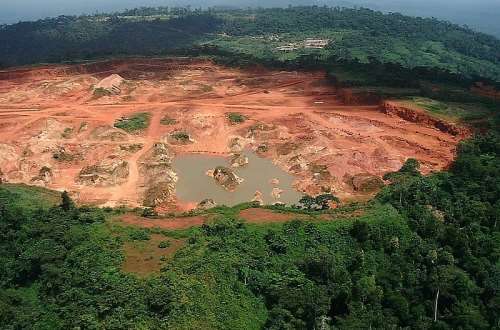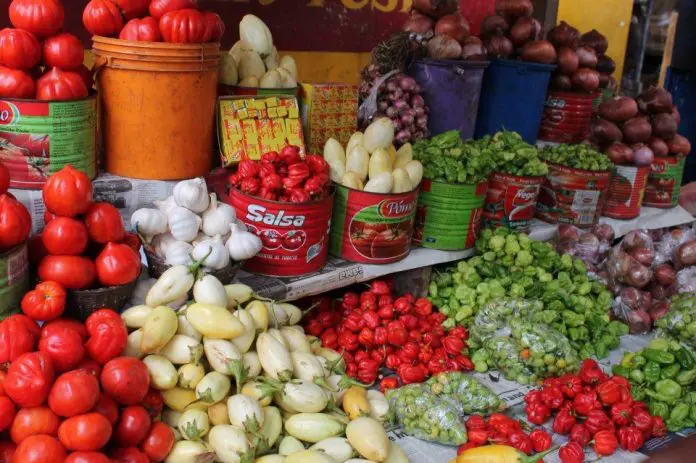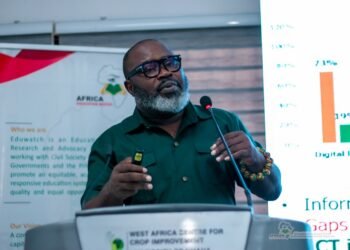The heavy metal poisoning crisis linked to galamsey activities is fast becoming one of Ghana’s most pressing public health challenges, yet, according to experts, public awareness remains dangerously low.
Dr. Kwame Sarpong Asiedu, Health Fellow at CDD-Ghana, has raised the alarm about widespread ignorance among traders and consumers regarding food contamination from illegal mining.
He expressed deep concern that, despite Environmental Protection Agency (EPA) reports showing mercury- and cyanide-infected vegetables and crops, many market women and consumers still treat the issue lightly.
“It’s funny, but the level of ignorance is alarming, and that is what really scares me. Because if someone says you’d add salt, which is basically sodium chloride, to a product that contains mercury, cyanide, and all that to dissolve it, I don’t know what chemical reaction that person is trying to undertake… I just cannot work out the chemical reaction or the nomenclature.”
Dr. Kwame Sarpong Asiedu
Equally troubling, he noted, is the widespread misconception that crops cannot grow in heavily polluted soil.
In reality, plants continue to sprout even in contaminated areas, quietly accumulating dangerous levels of toxins that later enter the food chain.

According to Dr. Asiedu, this is not a looming crisis but an existing one, painting a grim picture of the effects already visible in communities across the country.
“And you see, we shouldn’t say it is going to affect us because it is already affecting us. You see, so when the science and the numbers back the epidemiology, as in what is happening to us, I can no longer say what may happen to us. It is happening to us.
“We are seeing deformed kids. We are seeing a lot of people with renal failure. We are seeing people with skin diseases. We are seeing children who have low IQs because heavy metals are preventing them from assimilating basic information.”
Dr. Kwame Sarpong Asiedu
Dr. Asiedu recalled previous conversations about whether people should be evacuated from towns like Konongo, one of the areas worst hit by galamsey.
While such a move might sound logical on paper, he argued, it would be impractical because contamination now appears to be widespread.

This, he said, reflects a dangerous level of denial among Ghanaians who acknowledge the problem yet assume they will somehow be spared its effects.
Galamsey To Divide Society Over Food Safety
Dr. Asiedu warned of an emerging two-tier society in Ghana. Those who accept the science may increasingly rely on supermarkets and imported foods marked as safer, while others continue to buy from traditional markets, unaware or unconcerned about contamination.
He stressed that the nation is not yet too late to act but must intensify public education urgently.
“You either die convincing them that, look, we are dying from this heavy metal poisoning, we are getting deformed kids from this heavy metal poisoning, we are getting delayed mental development from this heavy metal poisoning or keep quiet and go to the market and buy from these people who would sell to you in their ignorance, and eat it, and get renal failure and dye anyway. So it is damn if you did and damn if you didn’t. So we are not late, we just have to soldier on.”
Dr. Kwame Sarpong Asiedu

He underscored the need for communication in local languages, explaining that this is where misinformation thrives.
Without demystifying myths about food contamination at the grassroots level, he warned, the crisis will worsen.
“We’ll get to the point where you go to the chop bar or to the restaurant, and then you need to ask, Where did the goat come from? Who ran the goat? What grass did they eat? Which city or village, or town, were they brought in from? Who killed it? Where did the cassava come from? Where did the tomatoes and garden eggs that were used to make the light soup come from?”
Dr. Kwame Sarpong Asiedu
He admitted this would be impractical, yet noted that even cooking at home would not guarantee safety since produce from the same contaminated markets ends up in households.
Meanwhile, the Food and Drugs Authority (FDA) has already confirmed heavy metals in everyday staples like turmeric powder and “tombrown“. A report released just last week highlighted the extent of the problem.

Dr. Asiedu stressed that only sustained public pressure can compel the government to act. He argued that citizens cannot afford to give up because the stakes are literally life and death.
Continuing the fight might bring insults and ridicule in some quarters, he said, but staying silent will mean consuming contaminated food and succumbing to its health consequences.
As illegal mining spreads and its toxic legacy seeps deeper into the nation’s food system, the call for action grows more urgent.
Without swift intervention, the heavy metal poisoning crisis could create a lasting public health disaster and deepen inequality in access to safe food.
READ ALSO: Nigerian DStv Decoders Limiting Ghanaian Movie Industry Growth






















